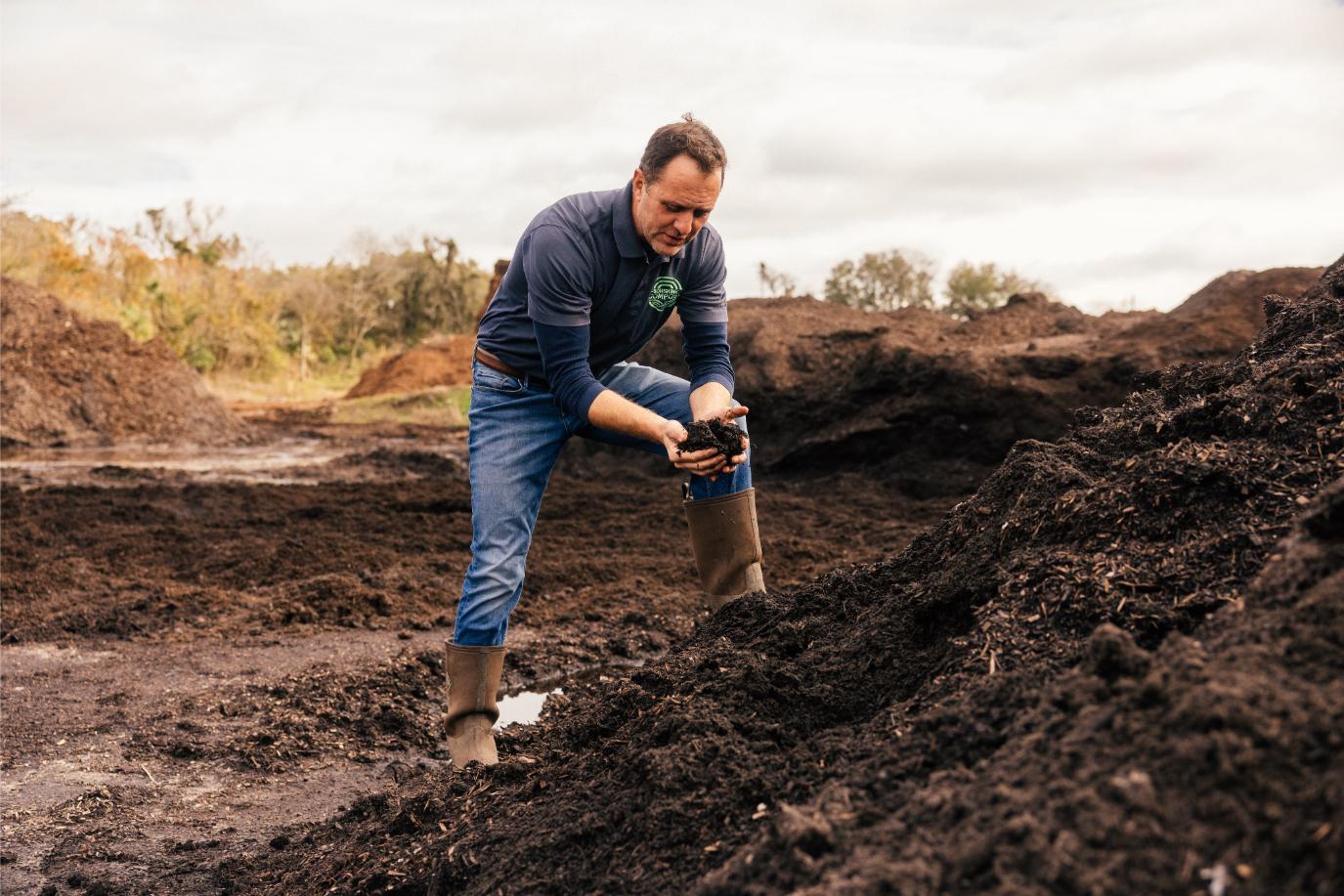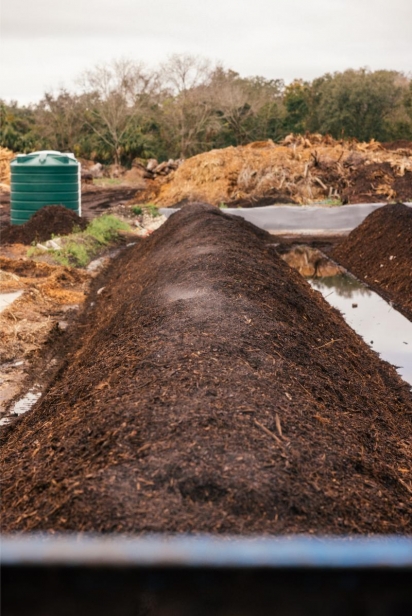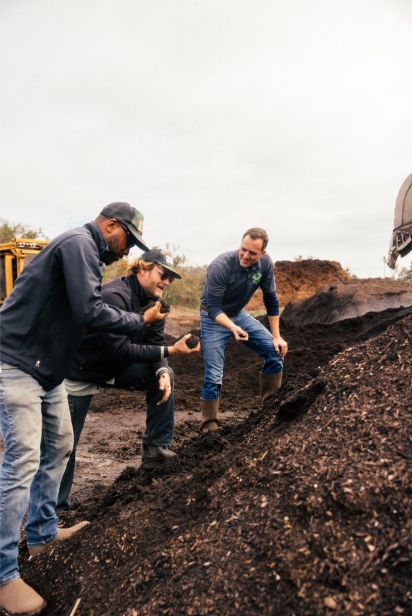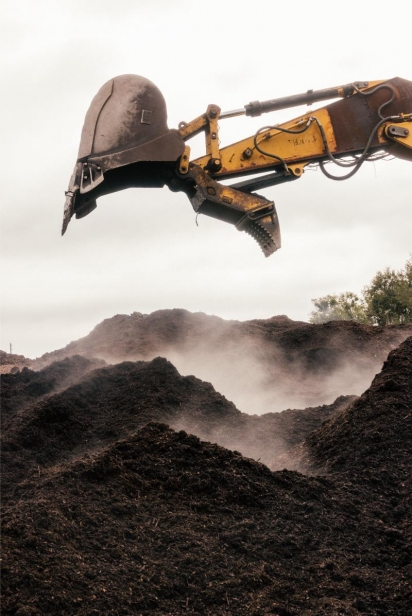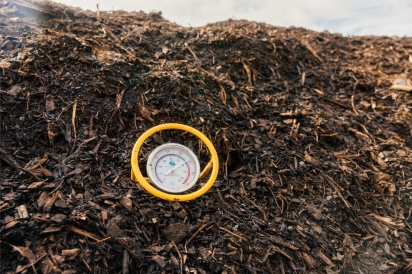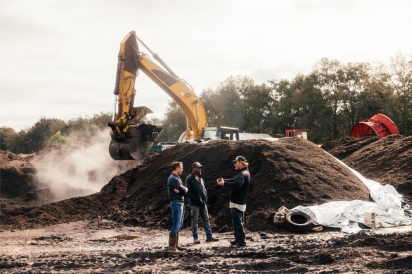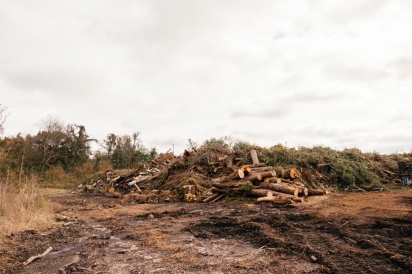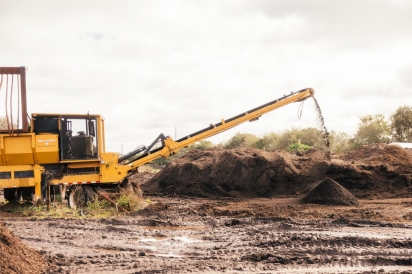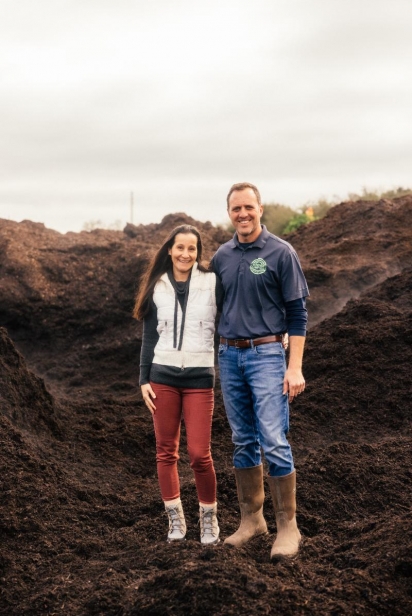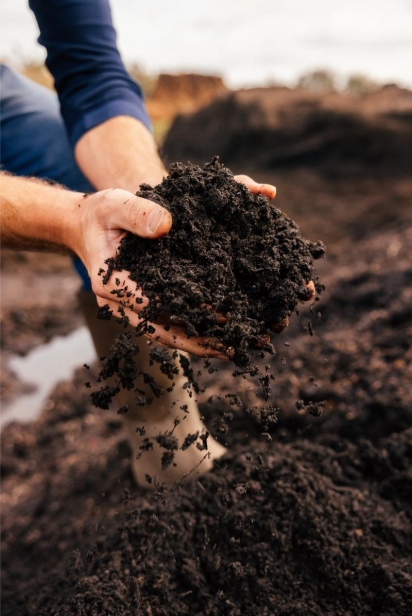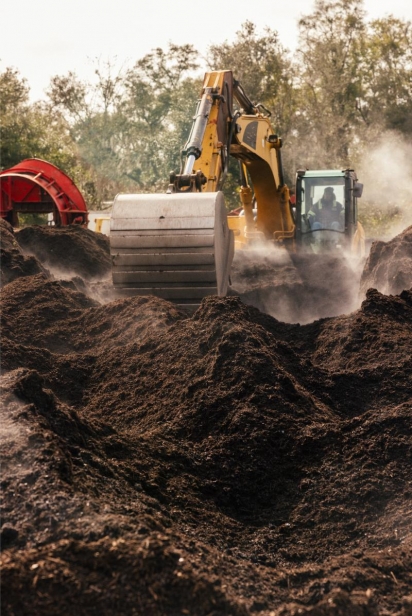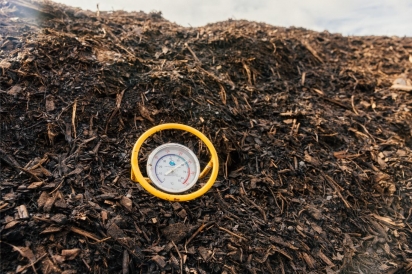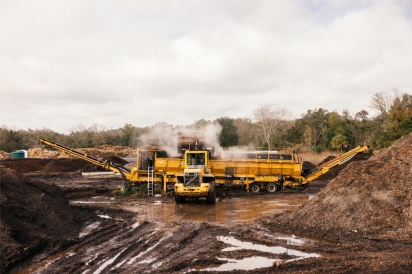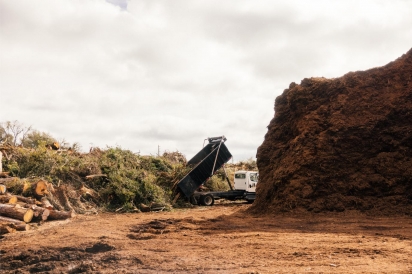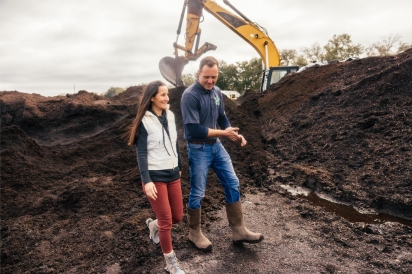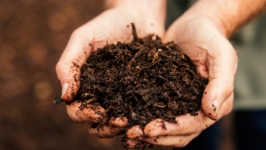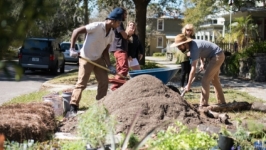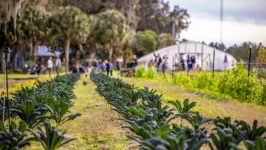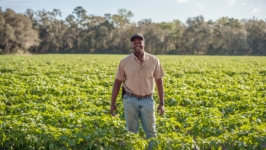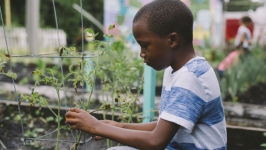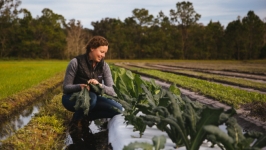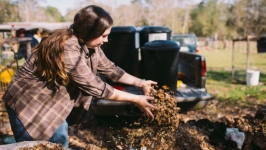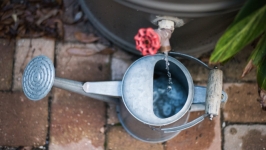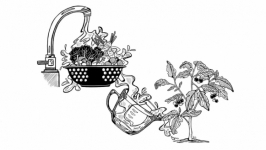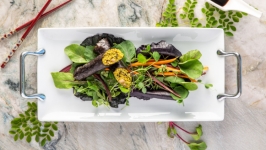Commercial Composting with Sunshine Organics
It’s a clear, sunny day at Sunshine Organics and Compost. The air is dry, but the ground is wet and there’s a familiar tick and hum of bulldozers and heavy machinery. Sunshine Organics’ founders Mike and Christina Kelcourse stand amongst massive piles of freshly ground landscape debris and steaming hot piles of compost at Duval County’s first commercial food composting facility. Their operation reclaimed more than 60,000 tons of organic waste last year, reducing greenhouse gas emissions, sequestering carbon and creating sustainable solutions for farmers to improve their soil fertility. Compost Jax is Sunshine Organics’ first facility, but they have hopes of expanding their organic waste collection throughout Florida.
Commercial composting is the large-scale processing of organic waste. This process diverts organic material from the landfill and generates a nutrient rich amendment for Florida’s sandy soils. At Sunshine Organics, they process a great deal of tree waste and industrial food waste, like spent beer grain, coffee grounds, bread waste, and expired condiments. Composting begins by layering ground up woody biomass, food waste and water in a large concrete basin in the earth. The organic waste sits here for one week before being transferred to a concrete slab and arranged in a windrow, or long row. The piles are turned once a week for three months, screened and then allowed to cure for one month before being sold to farmers, landscapers and home gardeners.
Currently, Compost Jax is producing “1,600 to 1,700 tons of finished compost a month” according to Mike Kelcourse. They also make topsoil, biochar and mulch, and all their products are certified by the Organic Materials Review Institute (OMRI). Sunshine Organics’ work makes these OMRI-certified amendments more affordable for farmers, which will hopefully reduce their dependence on conventional fossil fuel-derived fertilizers.
According to studies done by Kessler Consulting, food waste in the Southeast ranges from 15-20% of the total waste stream. Sunshine Organics offers a food collection service for food providers; this helps divert organic waste from the landfill which is the third largest source of greenhouse gas emissions. In 2023 the company partnered with the City of Jacksonville to offer a six-month restaurant composting pilot. “It was intentionally small, allowing us to gather information about logistics and best practices,” says Chris. “At the end, all participants requested to continue the program.”
Sunshine Organics is one of the few biochar producers of its kind in the Southeast. Biochar is a type of charcoal made from pyrolysis, or thermal decomposition of organic materials in an oxygen limited environment. In biochar production, organic materials are ground up, dried and then fed into a furnace, which does not fully combust the organic material. Kelly Pope from Bold City Biochar explains, "the result is a solid material which, on a molecular level, is hungry for carbon, nutrients and minerals. This quality makes biochar a great soil amendment for water and nutrient retention."
Biochar is part of new green infrastructure initiatives that manage forestry, landscape and agricultural waste to sequester carbon. “For every one ton of biochar we produce, we are sequestering 2.35 tons of carbon from our atmosphere and sinking it back into our soil, which is where it belongs,” Mike says. With further advancement in technology, the byproducts of biochar production, syngas and heat, could be used to generate electricity. “People are doing life-changing things with biochar. There are companies using biochar as a filler agent to make zero-carbon concrete and asphalt, and companies using biochar to build biofilters to filter freshwater systems,” says Mike.
In June 2023, Sunshine Compost received a $4.9 million USDA grant to advance their operations. As part of the Rural Development Fertilizer Production Expansion Program, this grant makes Compost Jax a state-of-the-art facility with efficient equipment and delivery service to serve more farmers. Soon they will install a new computerized ASP composting system, a forced aerated static process which forces air into the compost to control the temperature, moisture and oxygen levels. This new technology cuts their composting process down to six weeks. The grant also builds a custom biochar furnace which should be in operation this summer.
Sunshine Organics has plans to bag their products for sale in local home improvement stores but for now, they are available by the yard at their facility on Buffalo Avenue in Jacksonville. They can even load pickup trucks with compost and deliver orders larger than three yards from 7am-4pm Monday through Friday.
The Kelcourses are working with other cities to expand and it’s their dream to offer curbside composting throughout Florida one day. “The future for Sunshine is bright,” says Chris. "Every city needs a facility like Sunshine.”


